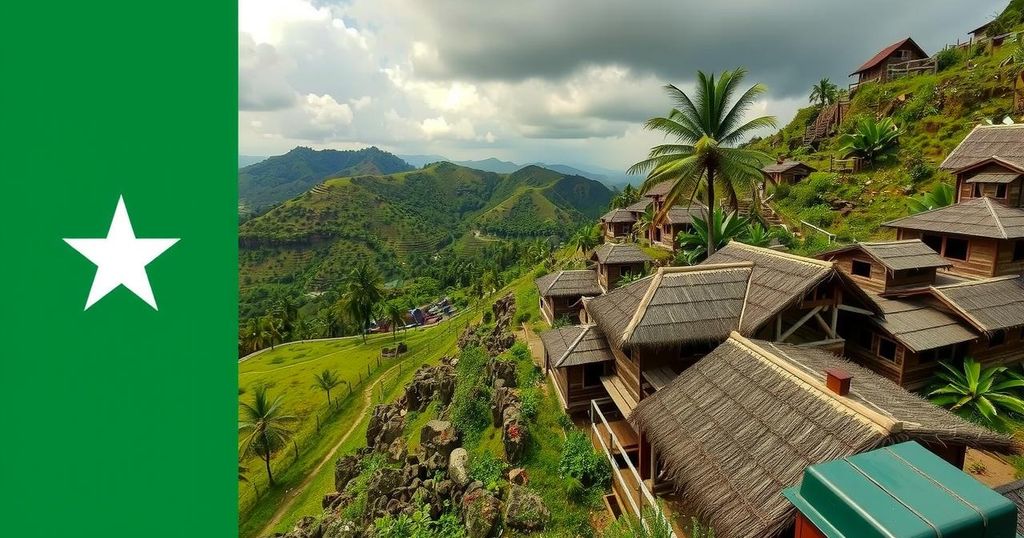The Political Evolution of Equatorial Guinea: From Independence to Present
Equatorial Guinea gained independence from Spain on October 12, 1968, following a period of political upheaval. Francisco Macías Nguema ruled as a dictator until his overthrow in 1979 by his nephew, Teodoro Obiang Nguema Mbasogo, who has remained in power ever since amidst allegations of severe human rights abuses and elections marred by fraud. Despite some constitutional amendments aiming towards democratization, oppressive practices continue, overshadowing significant political and social reforms.
Equatorial Guinea’s journey towards independence began to take shape in late 1967. By early 1968, following a suspension of autonomous political control by the Spanish government, a national referendum was conducted, approving a new constitution which was then overwhelmingly ratified on August 11, 1968. This led to parliamentary elections in September and the formal proclamation of independence on October 12, 1968. The first president of the nation was Francisco Macías Nguema, who took office in 1971 and quickly assumed considerable powers, culminating in naming himself president for life in 1972. Under Macías’ regime, civil liberties were severely restricted; he controlled the media, halted foreign travel, and was responsible for numerous arrests and executions during the years of 1975 to 1977, resulting in widespread international condemnation and a significant exodus of citizens. In 1979, Macías was overthrown and executed by his nephew, Teodoro Obiang Nguema Mbasogo, who established a military-led government before adopting a less authoritarian constitution in 1982. However, President Obiang’s subsequent elections were often marred by allegations of fraud. His administration faced significant criticism both domestically and internationally for its oppressive tactics and allegations of corruption, particularly concerning the nation’s oil revenues, which grew dramatically from the late 20th century onward. Attempts at democratization occurred with constitutional changes during the early 1990s, yet Obiang retained a firm grip on power, winning elections by wide margins amidst accusations of electoral malfeasance. In 2011, a referendum approved amendments to the country’s constitution that allowed for a bicameral legislature and raised the age limit for presidential candidates, yet many viewed these changes as consolidating Obiang’s authority. Equatorial Guinea hosted the Africa Cup of Nations football tournament in 2015 on short notice, demonstrating its organizational capabilities amidst its political landscape. The 2016 presidential election saw Obiang re-elected again under contentious circumstances, with numerous reports of human rights violations prior to the vote. The following elections held in November 2022 saw Obiang re-affirming his position amid widespread allegations of electoral irregularities, raising concerns about the fairness and transparency of the electoral process. Despite these challenges, in September 2022, the nation abolished the death penalty, marking a notable step in its legal reforms, yet the political oppression under the current regime continues to overshadow its efforts toward reform.
Equatorial Guinea, located on the west coast of Central Africa, has undergone significant political changes since gaining independence from Spain in 1968. Originally a Spanish colony, the transition to self-governance was tumultuous, characterized by extreme authoritarianism under Francisco Macías Nguema, who ruled from 1971 until his overthrow in 1979. Under the leadership of Teodoro Obiang Nguema Mbasogo, the regime has been repeatedly condemned for human rights abuses, political repression, and corruption, particularly in relation to the country’s oil wealth. Despite periodic constitutional reforms, political opposition remains stifled, leading to criticism from international human rights organizations. The nation’s electoral processes have been fraught with allegations of fraud and intimidation, undermining the legitimacy of its democratic institutions.
Equatorial Guinea continues to grapple with the legacy of authoritarian rule despite its independence. The political landscape is marked by persistent allegations of corruption and human rights violations under President Teodoro Obiang Nguema Mbasogo, who has maintained power for decades through alleged electoral manipulation. While there have been some reforms, such as the abolition of the death penalty and amendments to the constitution, substantial changes remain elusive, with the political repression and economic disparities posing significant challenges for the nation going forward.
Original Source: www.britannica.com




Post Comment